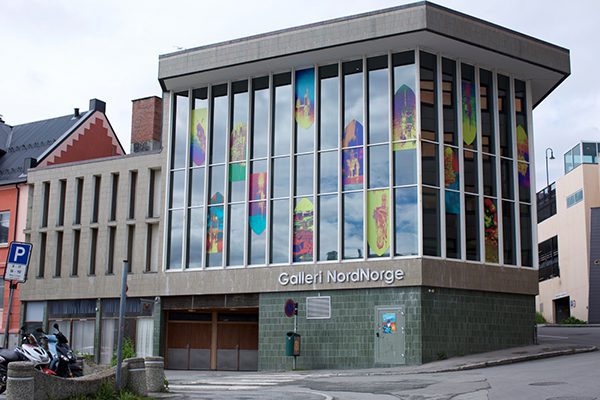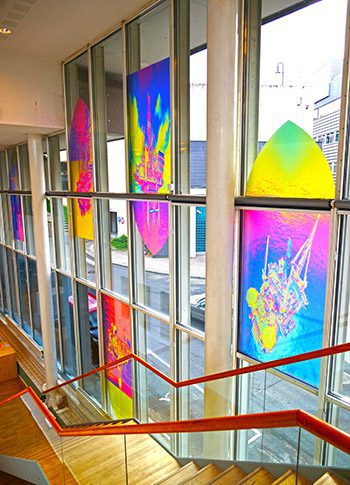Professor Ranis Shows Work in Arctic Arts Festival

Associate Professor of Art Marek Ranis is one of 15 artists featured in the exhibition of the Arctic Arts Festival in Harstad, Norway. The international exhibition, Subsistence, is on view June 24 through August 5 at Harstad’s Galleri NordNorge.
Created through a collaboration between the Northern Norway Arts Museum and Anchorage Museum (Alaska), Subsistence examines the complexity of the current situation in the Arctic, where economic dependency on oil production, the environmental effects of climate change, and indigenous ways of life are often in conflict. The 15 participating artists come from six countries.
The Galleri NordNorge occupies a repurposed indoor swimming facility with large, three-story windows. Ranis’s work is a vinyl window installation called “Faith.” At a distance, it looks like stained glass windows, but a closer inspection reveals the imagery to be of oil rigs. 
“Oils rigs, just by their form, sheer scale, and immense technological sophistication, could be compared to both space ships and the grand gothic cathedrals,” says Ranis. “Those imposing towers suspended in the sea horizon represent the pinnacle achievement of our civilization as well as our aspirations. They are defining monuments to the late modernity and its constant search for energy resources to sustain the ‘progress’ – the subsistence of the industrial world.”
Since 2002, Ranis has created a diverse body of work informed by a global investigation into climate change, conducting research during residencies in Iceland, Greenland, and Alaska. Last summer, his film Like Shishmaref was part of an international exhibition at the Anchorage Museum; it is currently on view at The Mint Museum in Charlotte.
Last October, Ranis presented research at the 2016 Arctic Circle Assembly, held in Reykjavik, Iceland. The Arctic Circle Assembly is the largest international gathering on the Arctic, bringing together governments, universities, think tanks, corporations, communities, and other organizations to address challenges facing the Arctic.